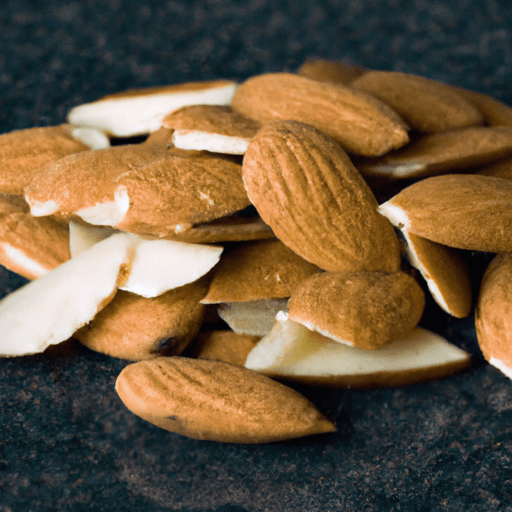All About Almond Flakes: A Versatile and Nutritious Ingredient
If you’re a food enthusiast, you’ve likely come across almond flakes in various recipes such as cakes, cookies, and savory dishes. These delicate, crunchy morsels add a delightful texture and nutty flavor that can elevate any dish. But what exactly are almond flakes, and how can you incorporate them into your cooking? Let’s dive in and explore the world of almond flakes, from their taste and common uses to their nutritional value and fascinating history.
Taste and Texture
Almond flakes are thinly shaved pieces of almonds that provide a unique combination of crunchiness and creaminess. They possess a mild and slightly sweet taste that enhances both sweet and savory recipes. The delicate texture of almond flakes adds a satisfying crispness to your dishes, whether used as a topping or mixed into the batter.
Common Uses in Cooking
Due to their versatility, almond flakes are popularly used in a wide range of culinary creations. Here are a few popular ways to incorporate them into your cooking:
Baking: Almond flakes are a staple in baking. They are commonly used as a topping for cakes, cookies, and muffins, adding an appealing appearance and a delightful crunch. You can also mix them into the batter for additional texture and flavor.
Salads: Sprinkling almond flakes over salads provides a pleasant contrast to fresh greens and vegetables. Their nutty taste complements both fruit-based salads and hearty grain salads.
Asian Cuisine: Almond flakes are widely used in Asian cuisine, particularly in dishes like stir-fries and noodle dishes. They add a subtle nuttiness and complement the vibrant flavors found in these dishes.
Granola and Trail Mixes: For a healthy and satisfying snack, add almond flakes to your homemade granola or trail mix. They bring a delightful crunch alongside other nuts and dried fruits.
Nutritional Value
Almond flakes not only enhance the taste and texture of your dishes but also offer several nutritional benefits. Here’s a glimpse into their nutritional profile:
Healthy Fats: Almond flakes are a good source of heart-healthy monounsaturated fats, which can help lower bad cholesterol levels and reduce the risk of heart disease.
Protein: Almond flakes are an excellent plant-based source of protein. Just a handful can provide a significant amount of protein, making them a great addition to vegetarian and vegan diets.
Vitamins and Minerals: Almond flakes contain essential vitamins and minerals, including vitamin E, magnesium, and calcium. These nutrients contribute to overall well-being, supporting bone health, immune function, and skin health.
Dietary Fiber: With their high fiber content, almond flakes promote healthy digestion and can help regulate blood sugar levels.
Fun Facts and History
Almond trees were first cultivated over 4,000 years ago in the Mediterranean region. The Greeks and Romans greatly enjoyed almonds and considered them a prized and valuable ingredient.
In ancient Egypt, almonds were considered a symbol of fertility and were often included in wedding festivities.
California is currently the leading producer of almonds, supplying nearly 80% of the world’s almond consumption.
Almond flakes are not only used in food but also find their way into beauty products such as scrubs and lotions due to their skin-nourishing properties.
Now that you’re armed with knowledge about the wonders of almond flakes, why not try experimenting with some new recipes? Whether you’re looking to enhance your baked goods or add a delightful crunch to savory dishes, almond flakes are a must-have ingredient in your pantry. Enjoy the unique flavor, texture, and health benefits that almond flakes bring to your cooking!
Almond flakes
Origin: Almond flakes, also known as sliced almonds, are thin slices of almonds that are commonly used in cooking and baking. Almonds themselves are native to the Middle East, specifically Iran and surrounding regions, and have been cultivated and enjoyed for thousands of years.
Common uses: Almond flakes are a versatile ingredient used in a variety of culinary applications. They are often used as a topping for desserts, including cakes, pastries, and pies. They can also be sprinkled on salads, added to granola or cereal, or used as a crunchy coating for meats and fish.
Nutritional benefits: Almond flakes are a nutritious addition to a balanced diet. They are an excellent source of healthy fats, protein, dietary fiber, vitamins, and minerals. Almonds are particularly high in vitamin E and contain a good amount of magnesium, iron, and calcium. They are also rich in antioxidants, which help protect the body against oxidative stress.
Unique properties: Almond flakes have a delicate, slightly sweet flavor and a crispy texture. They are known for their rich, nutty aroma and taste. These thin slices of almonds are an easy way to add a decorative touch and a crunchy element to various dishes.
Historical significance: Almonds have a long history and have been enjoyed since ancient times. They were highly regarded in ancient Egyptian and Roman cultures for their delicious flavor and reputed health benefits. Almonds were even mentioned in the Bible and have been associated with fertility and good luck in various traditions and folklore. Today, almond flakes remain a popular ingredient in many cuisines around the world.




Use the share button below if you liked it.
It makes me smile, when I see it.